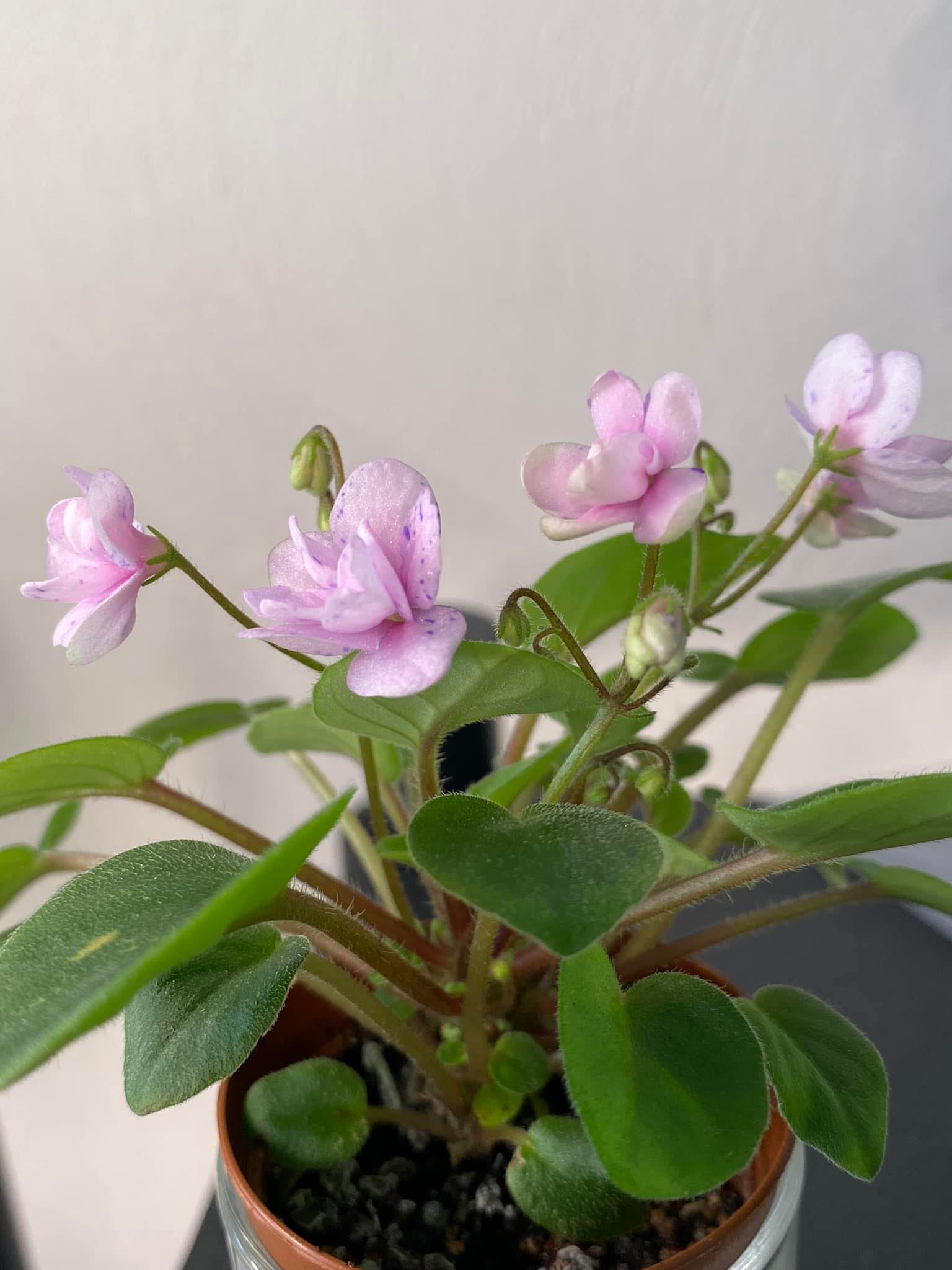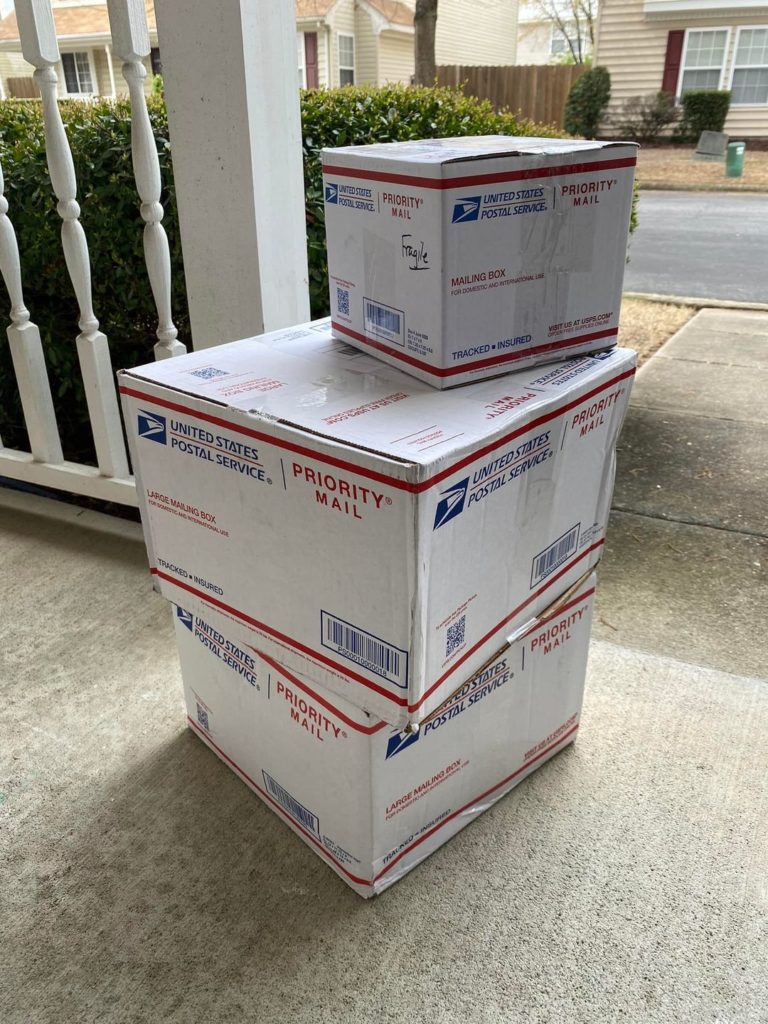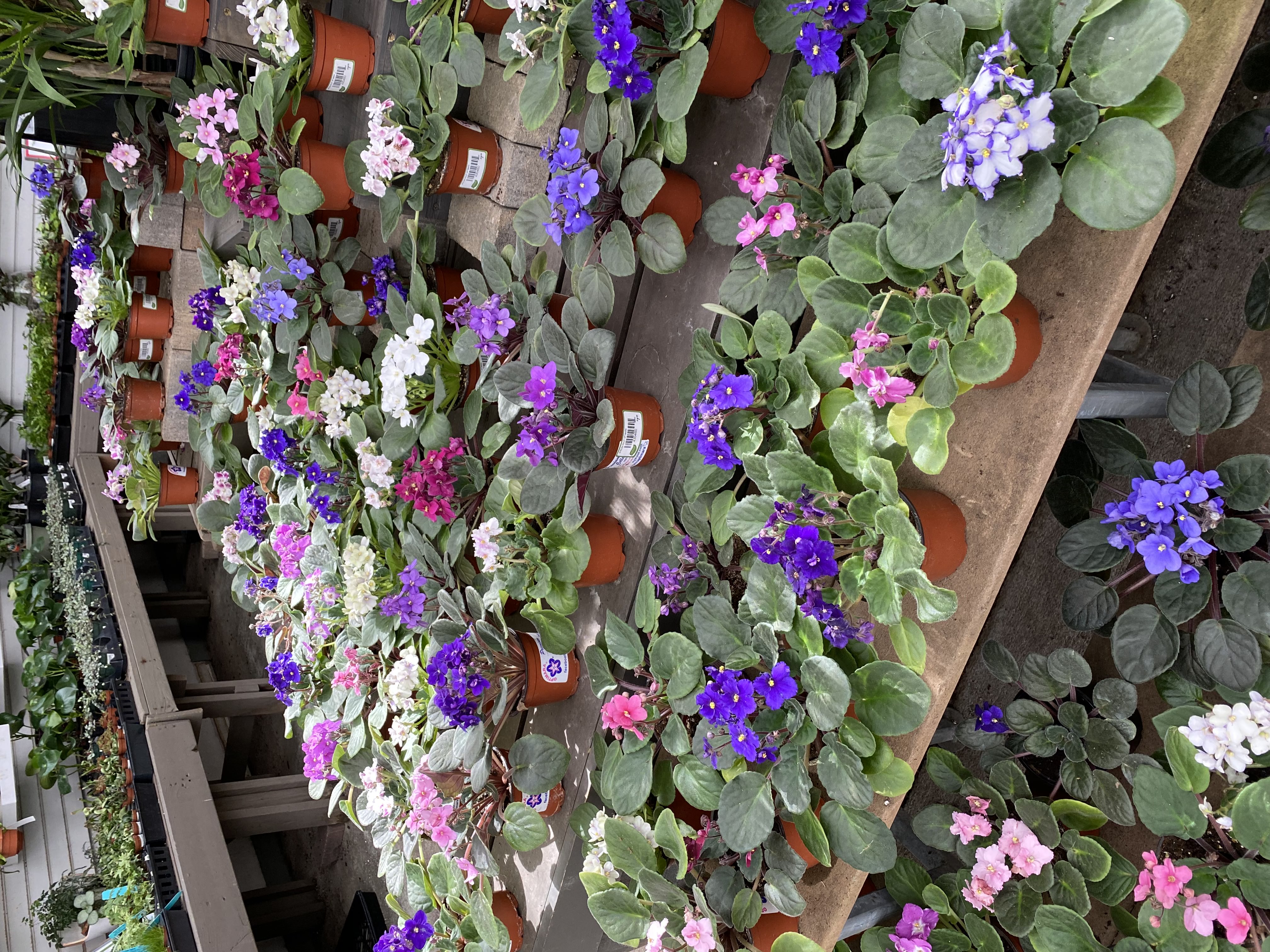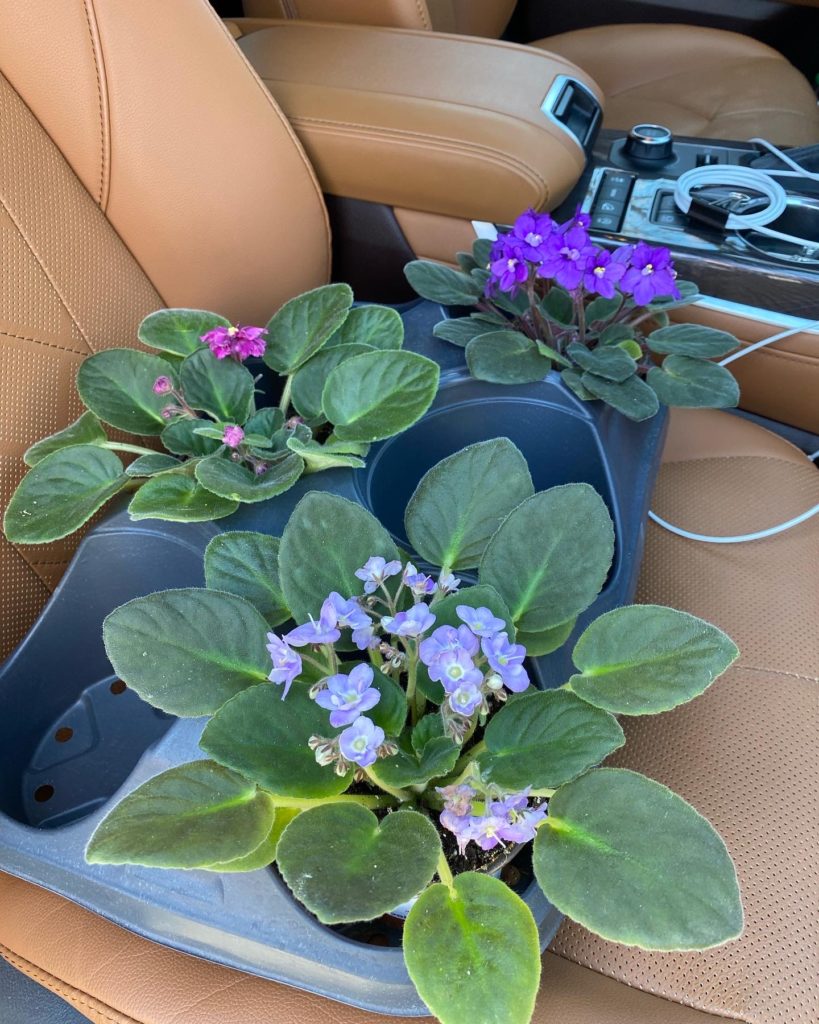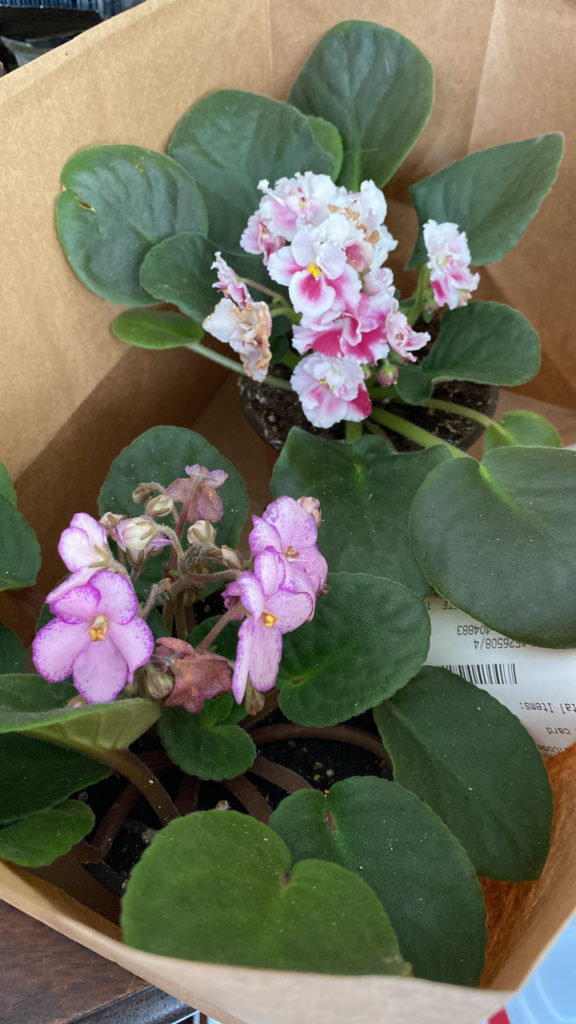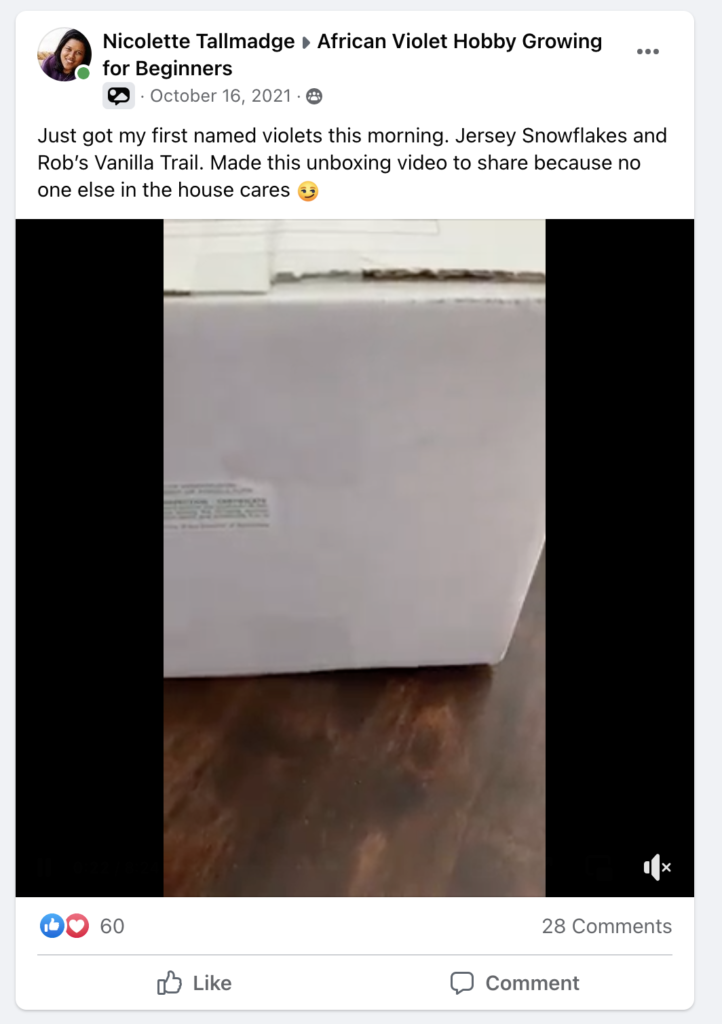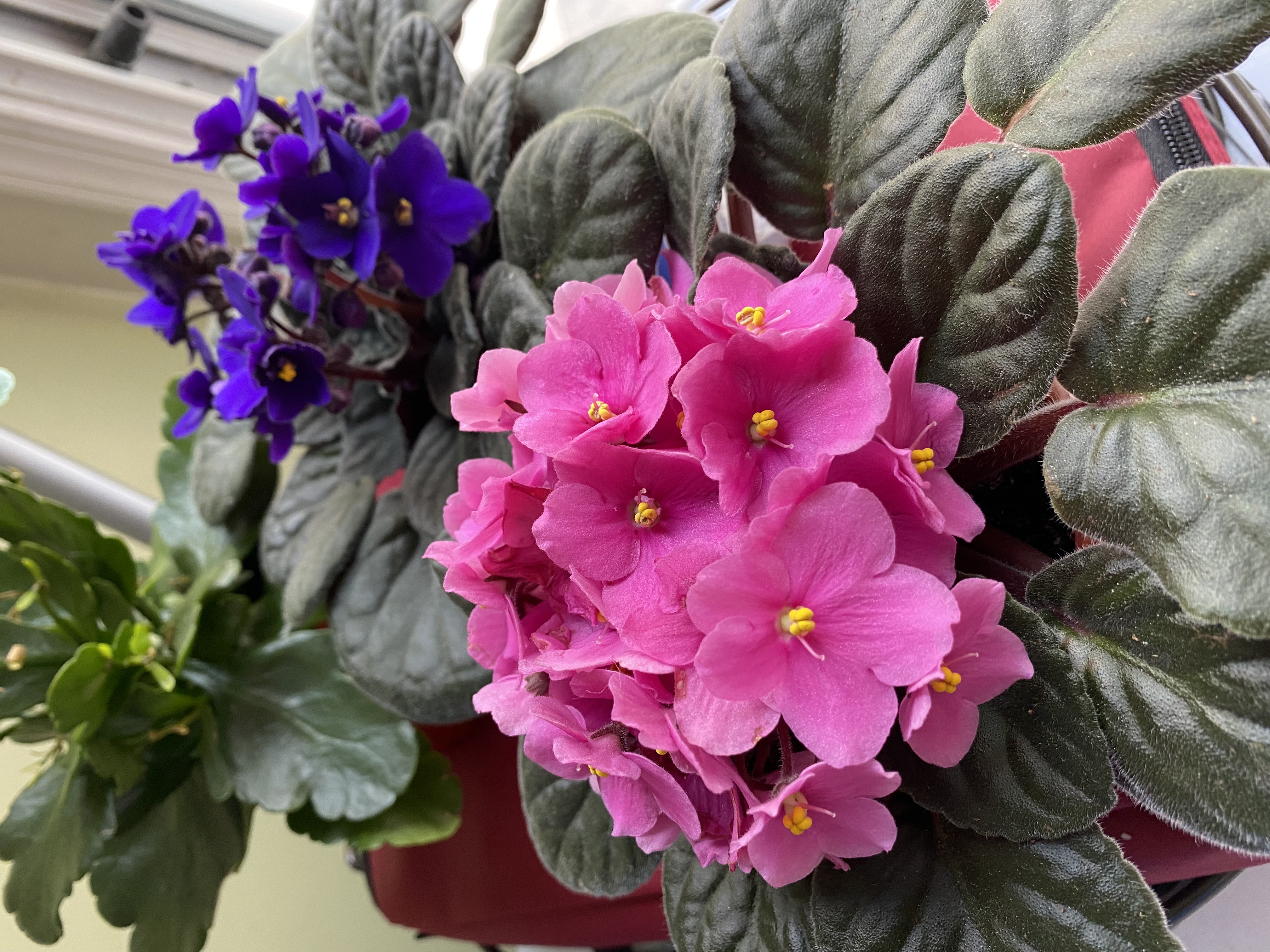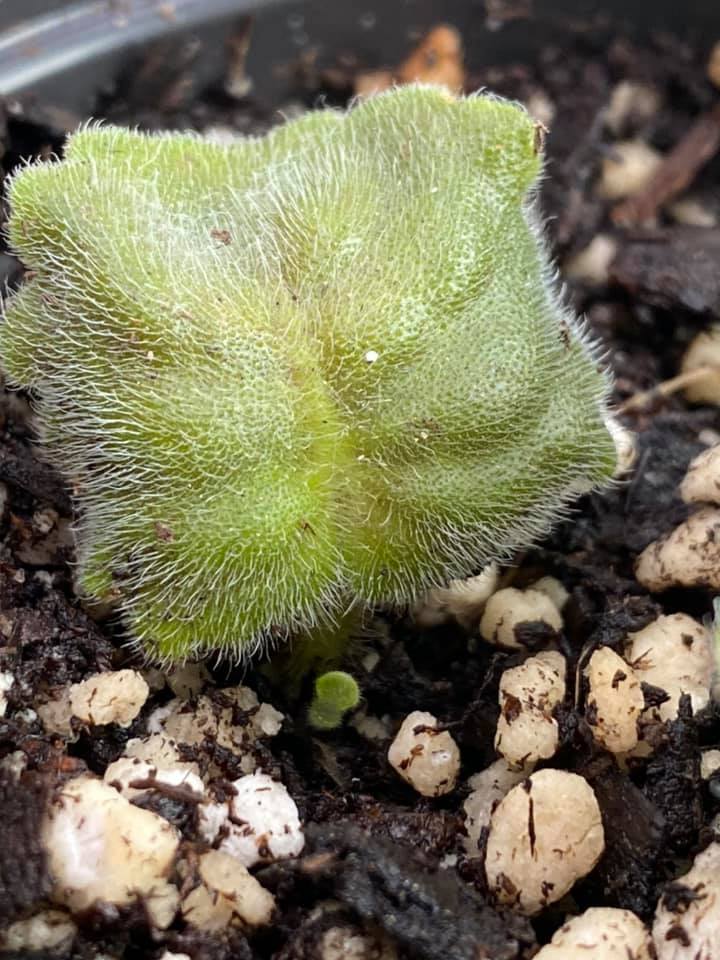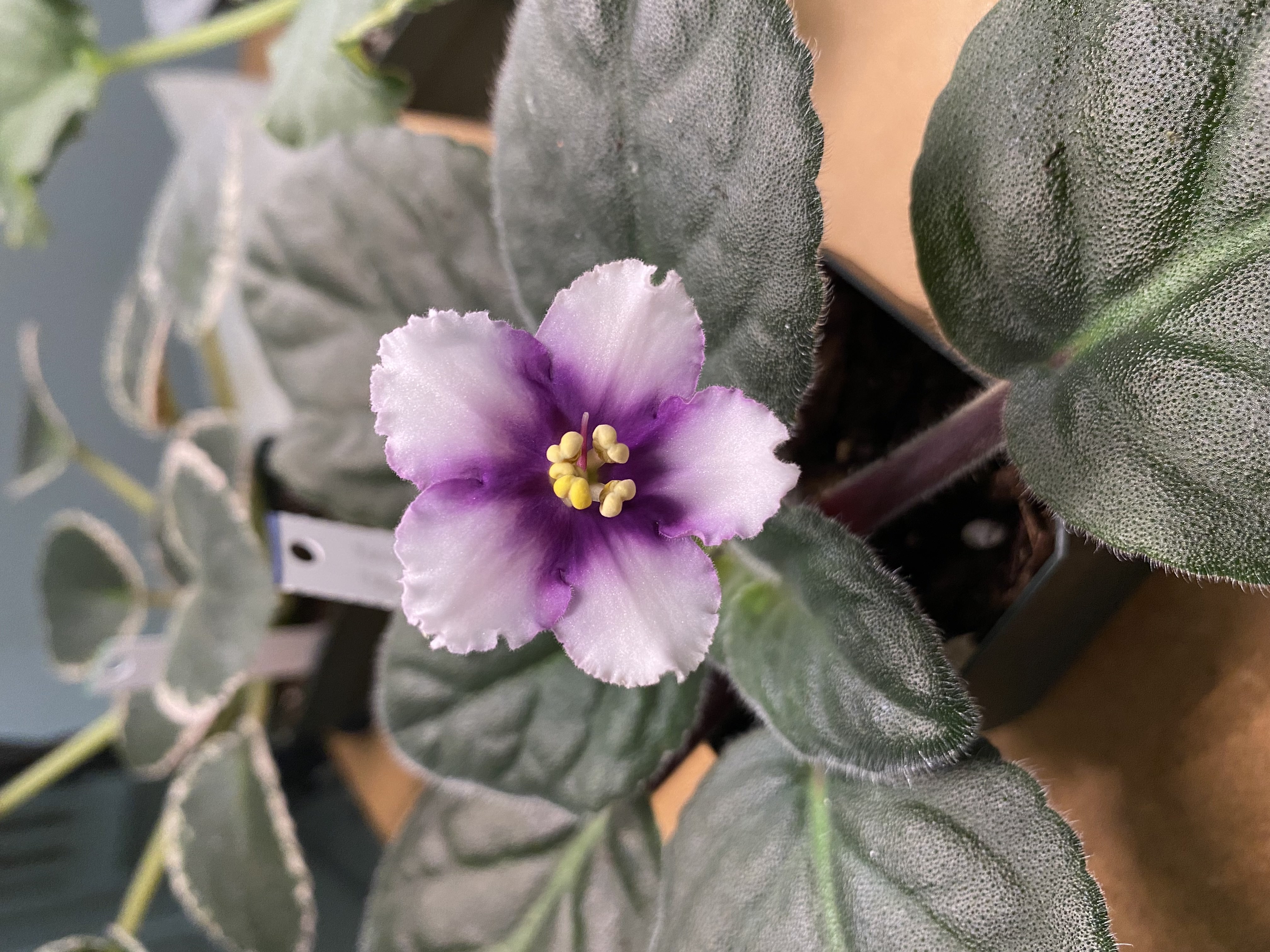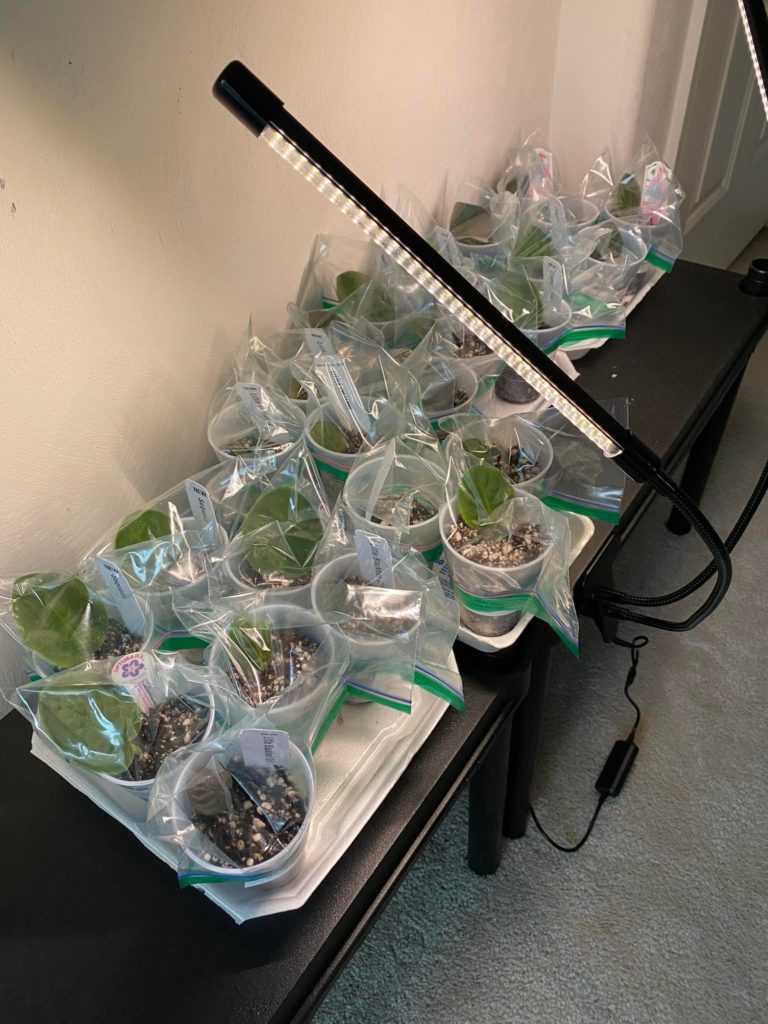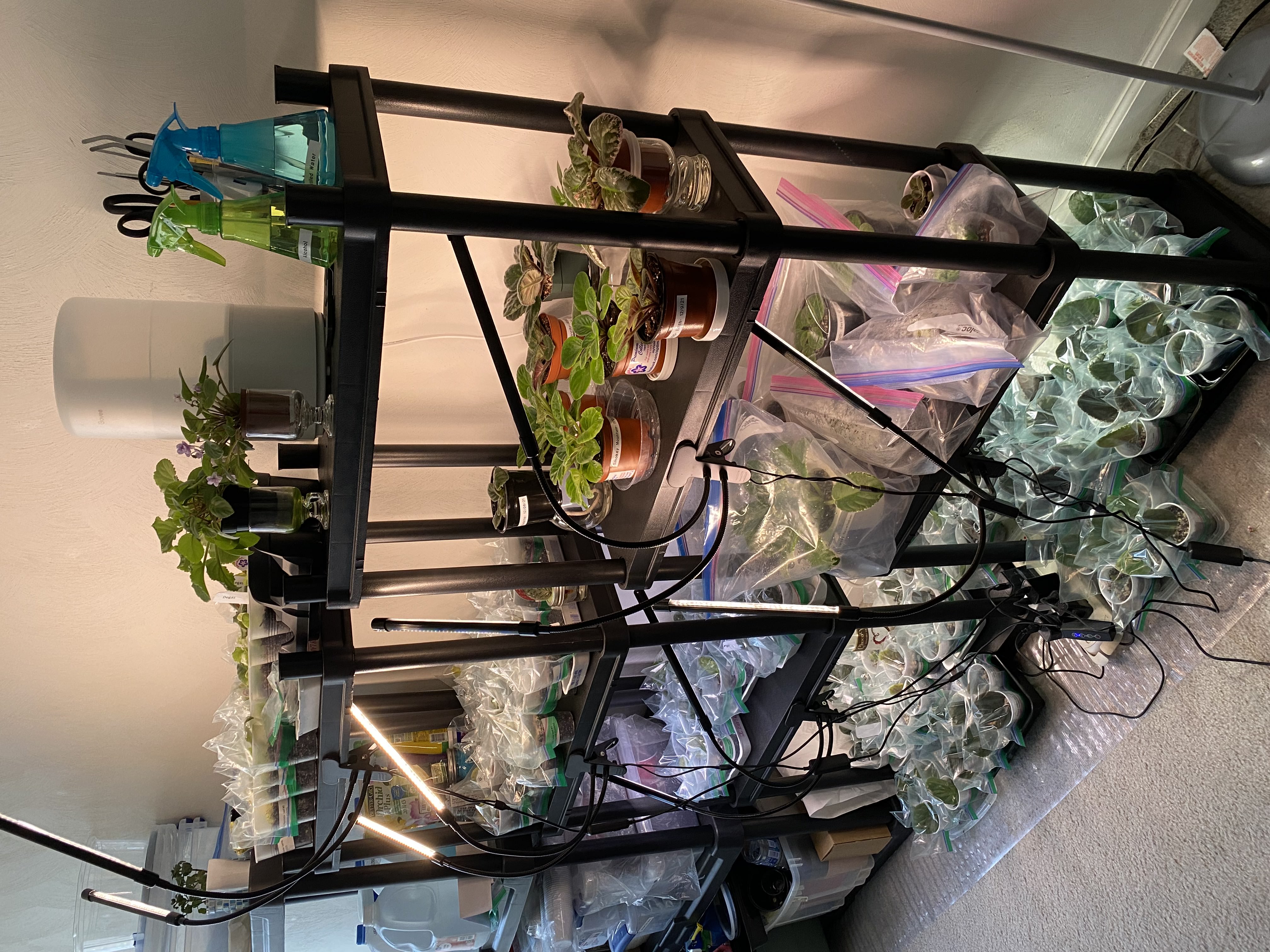There have been plenty of packages dropped on my doorstep in the past couple of months. But today’s package did not contain live plants (or leaves) for a change.
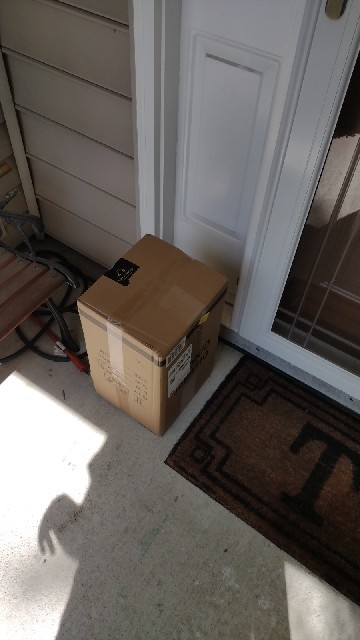
About a month ago, I made the decision to purchase a water distiller. When I was learning about how to care for African violets, I found that it’s best to avoid using water that contained chlorine, chlorimides, or ammonia…which many municipal water treatment facilities tend to add. As DH and I have never been fans of our own city’s water supply, we tended to use bottled water instead of tap water. I had already been using distilled water for other things in the house, so in time I also started using it for my AVs.
As my AV collection began to grow by leaps and bounds, I found that I was purchasing a gallon jug or two of water a week just to keep up! So distilling my own water seemed to make some sense to me…with the added bonus of fewer plastic jugs to recycle!

The way distilling works is that water inside the machine is heated up until it turns into steam. Then the steam rises to the top of the unit and is cooled down, which turns the steam back into a liquid, which is filtered through a charcoal packet.
All of the impurities, minerals, bacteria and most of the chemicals present in the water either evaporate or are left behind at the bottom of the distiller. The process of distilling a gallon of water took about 4 hours.
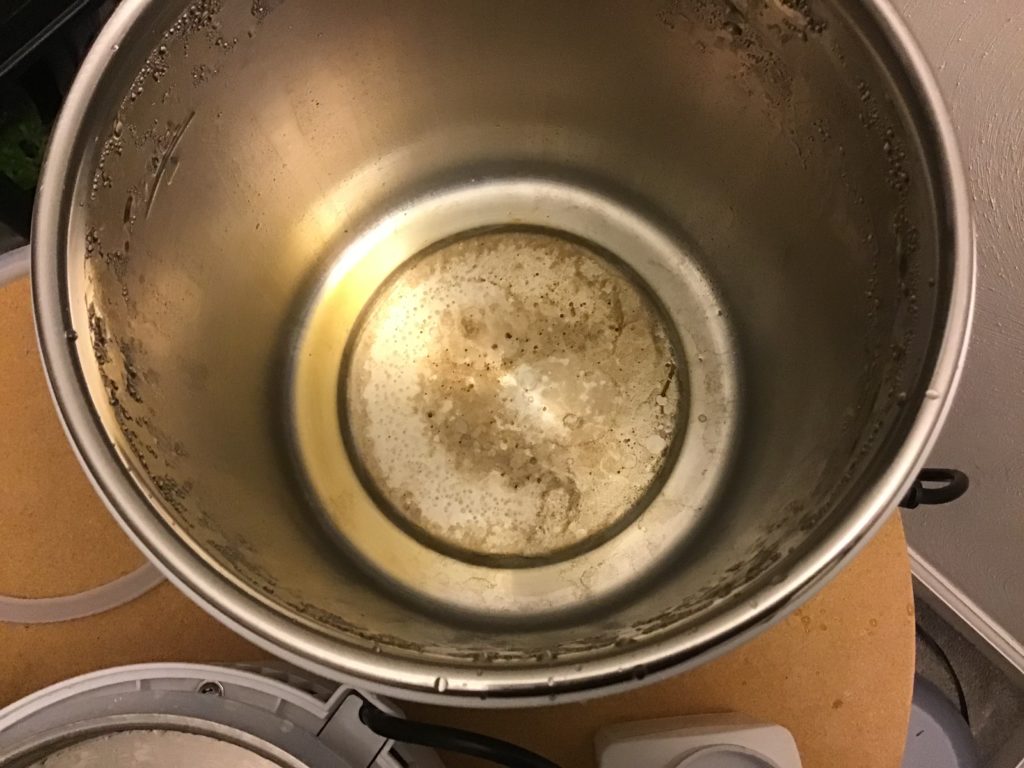
This isn’t to say that distilled water is always the best type of water to use for African violets. I found it useful for water propagation (all the leaves I started with our city tap water died within a week or so), and for making the fertilized water I use for my plants. Plus I’ve found myself needing to clean my plant room humidifier less when using distilled water instead of tap water.
But that’s not to say that you have to use distilled water. If you ever want to start a whole- ass debate among AV enthusiasts, ask a group of them about the best type of water to use for African violets. I unknowingly started a pretty lively debate when I put the question to my AV Facebook group.
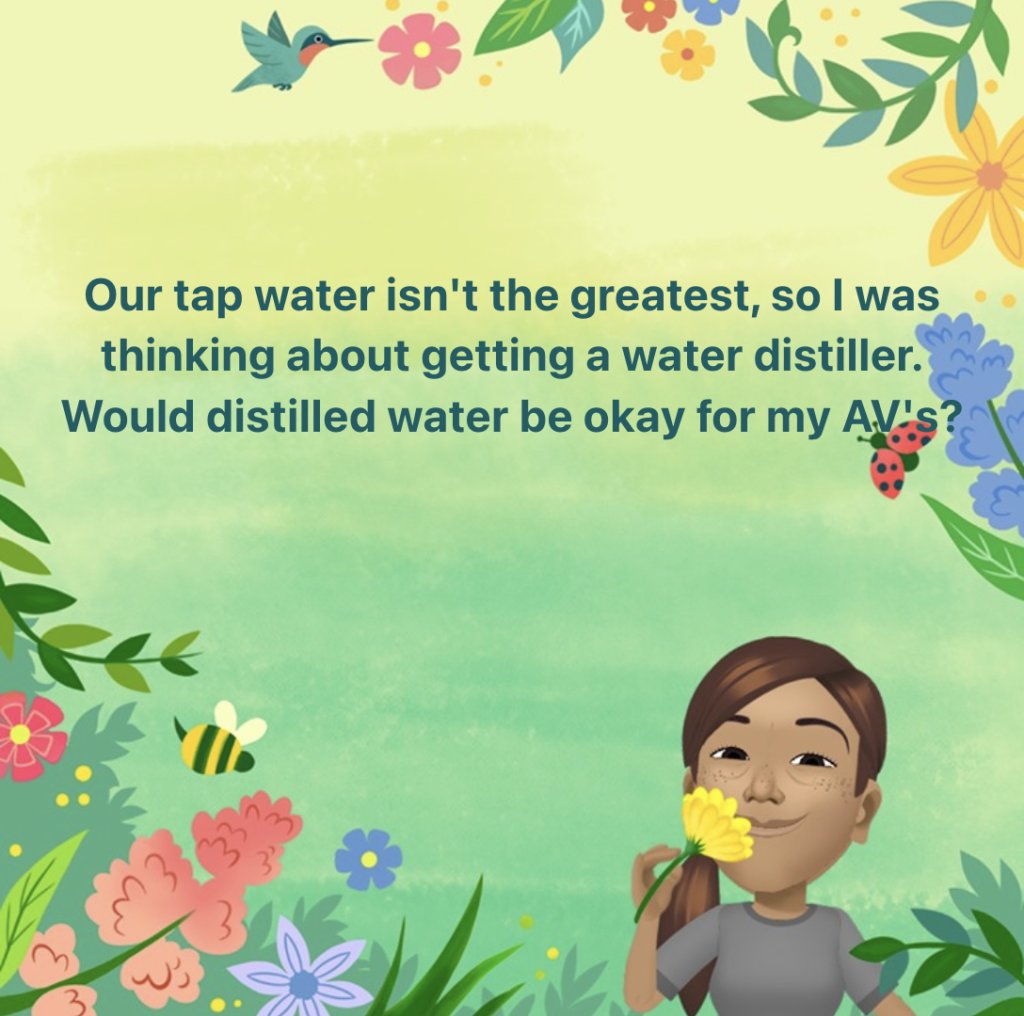
When it comes to watering their beloved AVs, it seems like everyone has an answer that works for them and most of the responses I got fell into one of these groups:
- Tap water– A good many folks said that they use plain old tap water. In these cases, the water that came out of the tap was already pretty good quality or it came from a source of good quality water, such as a private well. In some of these cases, chemicals like chlorine or chlorimides were added to the water, so they did suggest using chlorine remover (the same kind used for aquariums) to dissolve traces of chlorine in the water. If like me, you find that your tap water is questionable, this might not be a great option for you.
- Distilled water– A few people said that they also used distilled water, which is a type of purified water. As described above, this is water that’s heated until it becomes steam and then cooled back down into a liquid. This method removes most impurities and bacteria that might be harmful to your AVs. In addition to watering your AVs, distilled water is also great for use in machines like humidifiers or other mechanical devices. On the other hand, the process of distilling water also removes minerals like calcium and magnesium, which are beneficial for plants. Lacking these minerals for too long could hinder growth. To compensate for this you can add a calcium and magnesium supplement to the water before using on your AVs. Our local violet guru, in the Tidewater African Violet Society, Pat, recommended using a supplement like CalMag to your water or adding bone meal to the soil mix to ensure that violets watered with purified water gets these important minerals.
- Reverse osmosis (RO) water– One gentleman suggested that I use a RODI (Reverse Osmosis DeIonized) unit instead of a water distiller. Reverse osmosis is another type of purified water where water molecules are forced through a series of semi-permeable membranes that filter out impurities and bacteria. The advantage of RO water is that you can install a unit for your home water system instead of spending a couple of hours a day distilling water. Alternately, you can also buy large bottles of RO water instead. Installing a RODI unit can cost anywhere from a couple hundred to a couple of thousand dollars depending on how you’re planning on using it. It’s also recommended that you add a calcium and magnesium supplement to RO water or add bone meal to your soil mix.
- Rainwater– Another gentleman swore by using rainwater and it’s pretty easy to understand why. It’s free. You can collect rainwater by setting out containers or by using a rain barrel. You don’t have to worry about removing the chemicals your municipal water supply may have added and it also has the beneficial minerals that plants love. Plants are, after all, built to use rainwater. But, as with everything, there are a couple of disadvantages too. Rainwater can pick up contaminants in the air or through runoff on buildings. So if you live near a factory or if your air quality is a bit iffy, or even if it’s spring and there’s loads of pollen in the air, those issues can also show up in your rainwater. Plus, if you live in an area that doesn’t get rain on a regular basis, or if your area hits a dry spell, you may need to stockpile rainwater to get you through the dry periods
One thing that most people agreed on was if you’re not sure about the quality of your water, the best thing you can do is test it. The ideal pH range for African violets is about 6.5 to 7.5. Distilled and RO water is at neutral 7. The pH and quality of your tap water and rainwater may vary, so doing periodic tests using some simple kits you can find in an aquarium supply shop or on Amazon will help alert you to potential problems.
Lastly, they also reminded me that I need to watch the temperature of the water I’m using. Violets hate cold water….lukewarm or room temperature is best. And when top watering, be sure to gently wipe away any drops that land on the leaves.
I’m pretty sure that using a water distiller is not going to be my final solution, especially after seeing what kind of impurities it’s removing. Our violet guru Pat said that she had installed a RODI unit for her flowers and I’m thinking that I’ll probably transition over to that eventually. It would be nice to simply turn on the tap and get nice purified water!
What is your preferred source for watering your AVs? Leave a comment and share!
